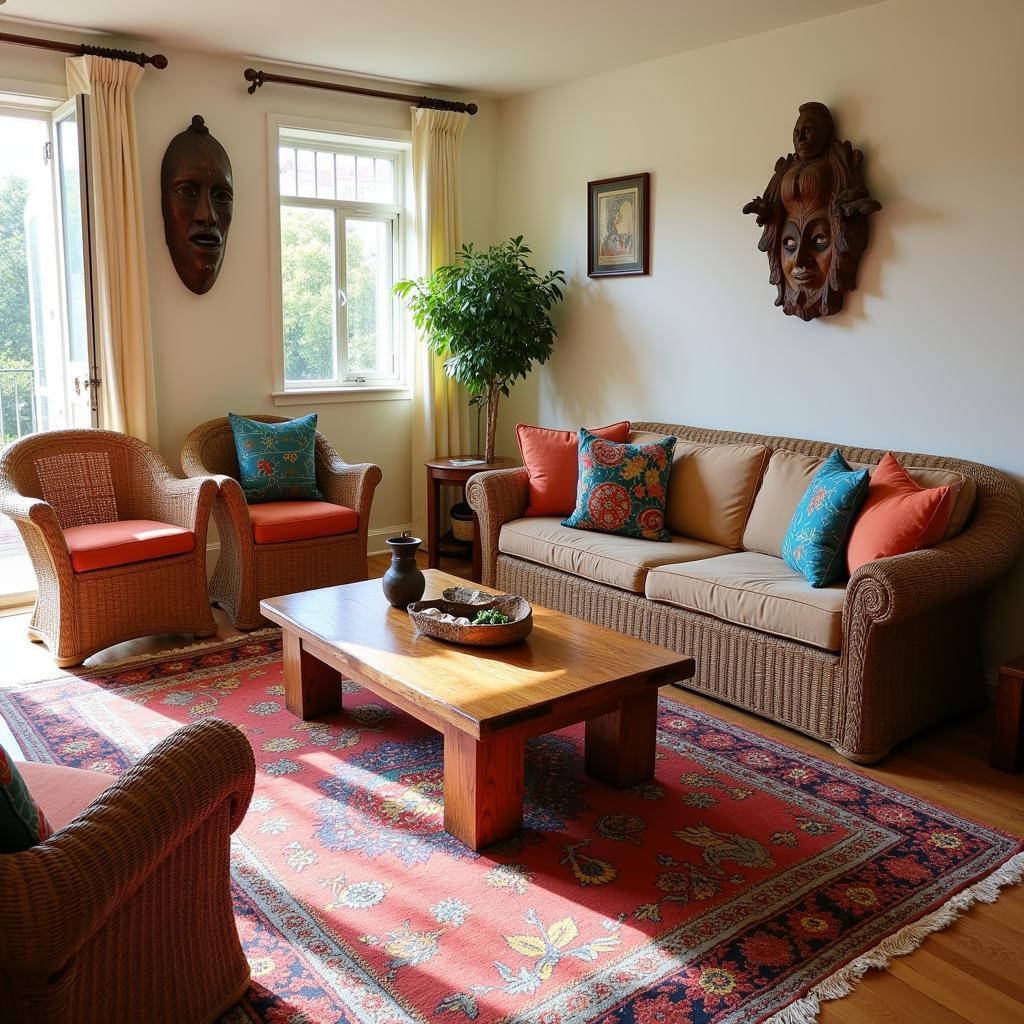African Black Soap for White Hair: Separating Fact from Fiction
African Black Soap For White Hair has recently gained attention, with many wondering if this traditional cleanser offers benefits beyond its typical uses. This article delves into the properties of African black soap, exploring its potential effects on white hair and addressing common misconceptions.
Understanding African Black Soap and Its Ingredients
African black soap, unlike commercial soaps, isn’t a single, standardized product. Its composition varies depending on the region and the maker. Common ingredients include plantains, cocoa pods, palm kernel oil, and shea butter. These natural components contribute to the soap’s cleansing properties and potential benefits for hair and skin. African black soap is known for its gentle yet effective cleansing action, making it a popular choice for those with sensitive skin or African American skin care issues.
Can African Black Soap Benefit White Hair?
While African black soap is traditionally used for cleansing the skin and hair, its effectiveness on white hair specifically requires further exploration. Many proponents claim it can clarify the scalp, remove product buildup, and even enhance shine. However, scientific evidence to support these claims specifically for white hair is limited. The soap’s ability to cleanse the scalp may indirectly benefit white hair by removing impurities that can dull its appearance.
Some of the ingredients in African black soap, such as shea butter, are known for their moisturizing properties. This could be beneficial for white hair, which can sometimes become dry and brittle. However, it’s crucial to remember that individual results may vary depending on hair type and other factors. You can learn more about shea butter benefits by visiting this 100 african shea butter benefits article.
Addressing Common Misconceptions about African Black Soap and White Hair
One common misconception is that African black soap can strip white hair of its natural oils, leading to dryness. While it’s true that over-washing with any cleanser can strip natural oils, this isn’t unique to African black soap. Using a moisturizing conditioner after washing can help replenish lost moisture. Another misconception is that African black soap can darken white hair. This is not supported by scientific evidence. The soap’s primary function is cleansing, not altering hair color.
How to Use African Black Soap for White Hair
If you’re considering using African black soap for your white hair, start by choosing a high-quality, authentic product. Lather the soap in your hands and gently massage it onto your wet scalp and hair. Rinse thoroughly and follow up with a moisturizing conditioner. It’s always advisable to do a patch test before applying any new product to your entire scalp and hair.
Does African black soap lighten hair?
No, African black soap does not lighten hair. Its primary function is to cleanse, not alter hair color. If you are looking for information about acne treatment using African black soap and Shea Butter, check out this article: african black soap and shea butter for acne.
What are the benefits of using African black soap on white hair?
Potential benefits include clarifying the scalp, removing product buildup, and potentially moisturizing dry hair due to ingredients like shea butter. For a more comprehensive review of Shea Butter, refer to 100 percent african shea butter review.
Is African black soap suitable for all hair types?
While generally considered gentle, individual reactions can vary. A patch test is recommended before widespread use. For more information on the differences between other African butters and Shea Butter, see african butter vs shea butter.
Dr. Abena Osei, a renowned trichologist from Ghana, states, “While more research is needed, anecdotal evidence suggests that African black soap can be a beneficial cleanser for various hair types, including white hair, especially when combined with proper moisturizing practices.”
Another expert, Kenyan hair care specialist Kamau Mwangi, adds, “The key to using African black soap effectively is moderation and choosing a genuine product. Always prioritize moisturizing after washing to maintain hair health.”
In conclusion, African black soap for white hair may offer cleansing and moisturizing benefits, but further research is needed to confirm its specific effects. Choosing a quality product, using it moderately, and following up with a moisturizer are crucial for maintaining healthy, vibrant white hair. Remember, individual experiences may vary.
FAQ
-
Can African black soap turn white hair yellow? No, there is no evidence to suggest this.
-
How often should I use African black soap on my white hair? Start with once or twice a week and adjust based on your hair’s needs.
-
Where can I buy authentic African black soap? Look for reputable online retailers or specialty stores selling African products.
-
Is African black soap safe for color-treated white hair? While generally safe, a patch test is recommended to ensure compatibility with your specific hair color treatment.
-
Can African black soap help with dandruff in white hair? Its cleansing properties might help, but it’s not a guaranteed treatment for dandruff.
-
What can I do if my white hair feels dry after using African black soap? Use a moisturizing conditioner or hair oil after washing.
-
Can I use African black soap on my white beard? Yes, the same principles apply.
Common Questions and Answers:
-
Q: Will African black soap strip the color from my dyed white hair? A: While it shouldn’t, a patch test is always recommended.
-
Q: Can African black soap help with hair growth for white hair? A: While a clean scalp promotes healthy hair growth, there’s no evidence suggesting African black soap specifically stimulates hair growth in white hair.
Related Articles and Further Reading:
- Explore more about natural hair care remedies.
- Learn about different types of African hair products.
Need further assistance? Contact us at +255768904061, email us at [email protected], or visit us at Mbarali DC Mawindi, Kangaga, Tanzania. Our customer service team is available 24/7.
